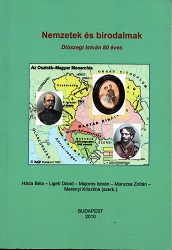
We kindly inform you that, as long as the subject affiliation of our 300.000+ articles is in progress, you might get unsufficient or no results on your third level or second level search. In this case, please broaden your search criteria.


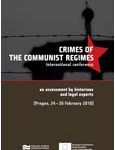
For six centuries the Slovenian lands had been the part of the Austro-Hungarian Empire, which disintegrated aft er the WWI. According to the will of the Paris Peace Conference and the world super powers the majority of the Slovenian lands in 1918 entered the first Yugoslavia. Th e western part belonged to Italy and the west-northern part belonged to Austria. During the WWI in Slovenia (1941–1945) there were occupation, resistance, revolution, collaboration and the civil war. After the Axis attack on Yugoslavia on 6 April 1941, Slovenia was occupied by Italy, Germany and Hungary. After the Italian capitulation in September 1943, Germany added the Italian Slovenian territory into the Operational Zone Adriatic Littoral. After the German occupation of Hungary, the Third Reich occupied the whole of Slovenia. All three occupying countries had the same goal: to Italianize, Germanize and Hungarize the Slovenians and assimilate the occupied territories.
More...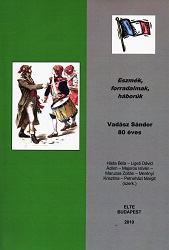
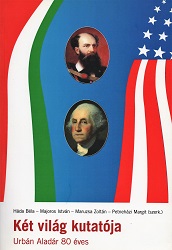
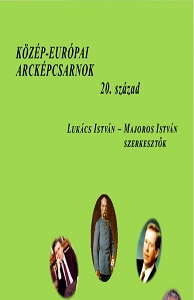
The purpose of this study is to examine the political career of Edvard Kocbek (1904–1981), the internationally recognised Slovene writer, poet, Christian Socialist thinker and politician. Kocbek became well known in 1937, after publishing a long article about the Spanish Civil War, in which he raised his voice against the fact that the main Slovenian party and the Church leadership supported Francisco Franco. In World War II he and his Christian Socialists cooperated with the communists in the Liberation Front and Kocbek has received high ranking positions after the war, but as a Christian, he had no place in the new regime and was forced to resigne. After a decade, he could publish his literary works again. In the afternoon of his life, he raised a particularly unpleasant question for the regime regarding the massacres committed by the Yugoslav Communists after World War II, which was a taboo subject till then.
More...
Georgi Dimitrov (1882–1949) Bulgarian communist leader, head of state after 1945. His international recognition was acquired in 1933, follo-wing the German Reichstag–fire trial in Leipzig, where he was acquitted of Hitler's judges, accused by Herman Göring and Joseph Goebbels. He moved then to Moscow, where he became secretary general of the Communist International, wich controlled of the communist parties aro-und the world. He had a role in the elaboration of the popular front policy - successful in France and Spain. At the same time he had to suffer of Sta-lin's dictatorship, he had to experience the execution of. After 1945, with the Yugoslavian Joszip Broz Tito, many of his associates they saw the op-portunity in the Balkan Federation to loosening the dependence on Sta-lin. What Tito did, he did not succeed: the presence of Soviet troops in Bulgaria had decided the outcome.
More...
This paper focuses on a person being both a scientist and a politician who played a key role in socialist Hungary in the initiation of the opening towards the West. Ferenc Erdei (1910–1971) started his career as a soci-ologist in the early 1930s and was mainly involved in politics after 1945. Following the revolution in 1956, he drew back from his active political role. He established the Research Institute of Agricultural Economics of the Hungarian Academy of Sciences which became the the most import-ant background institution of the Agrarian Lobby. My paper argues that the experience Erdei gained from his study trips in Western Europe in the 1930s served later as a basis for the „bridge-building” between the socialist East and the capitalist West. In my paper I investigate which western countries Erdei launched the opening towards and through which channels he started to build a network as well as the political and professional debates that followed this process.
More...
Life, later destiny, political and public work of Dr. Ágost Benárd, minister of welfare and labor and Alfréd Drasche–Lázár, extraordinary ambassa-dor and authorized minister, who were the signatories of the Peace Trea-ty of Trianon, on 4th June 1920 were beyond the scope of examination of the researchers and historians in the recent time. Present study is aiming to fill this gap, with presenting the two signatories’ political and public ca-reer. It covers their education, role in the First World War and their work between the two wars. It definitely refutes the allegations that Dr. Ágos Benárd and Alfréd Drasche–Lázár were weightless politicians who were willing to leave politics and who were voluntarily signatories of the peace treaty. By contrast, the study describes both politicians’ work after the signing of the peace treaty, and proves with persuasive arguments that they were two honest gentlemen, who were suffering of and said to be victims of the events, they were the formers of the 20th Century Central Europe.
More...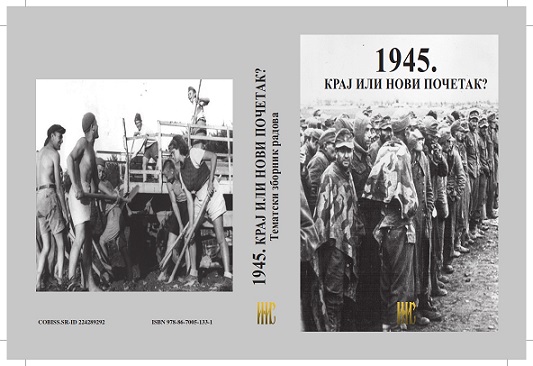
The duration and intensity of WWII in the territoiy of the Independent State of Croatia, the presence of occupation forces of the German Reich and the Kingdom of Italy, armed forces of the Independent State of Croatia, as well as the activities of the Yugoslav monarchists and communist-led partisans, caused direct clashes between the belligerent parties. This led to a number of casualties both among soldiers and civilians. Irreconcilable ideologies and military and political interests of the conflicting parties in the general and civil war increased the number of casualties. The communists reckoning with real or purported enemies alike in Yugoslavia during WWII and especially at its end and right after it, was massive and without mercy. Part of the radical and total reckoning of the Yugoslav communists with their enemies immediately after WWII was the order of the Interior Ministry of the Democratic Federal Yugoslavia of May 18, 1945 about removal of graves of "occupiers" and "enemies of the people" that targeted graves, tombstones of German, Italian and Hungarian armies, as well as those of the ustasha, chetniks and Slovenian home guards. The fact that the order was systematically implemented in the territory of the Independent State of Croatia is proven by surviving documents and testimonies of eyewitnesses, as well as by the state of the graveyards themselves. The graves of fallen partisans and victims of "Fascist terror" were protected by law, put in order and well maintained in Yugoslavia after WWII, whereas the graves of "enemy" soldiers and "collaborators" remained outside of the pale of the law. This remained so until the break-up of Yugoslavia.
More...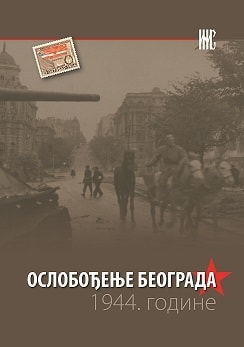
The Serbian bourgeoisie found itself in a particular social and political situation in 1944–1945. Apart from the victory of the People’s Liberation Movement in the liberation and civil war and the take-over by the Communist Party of Yugoslavia, it was determined by the division into two worlds, East and West, socialism and capitalism. The Serbian bourgeoisie, like that in other East European countries, found itself between those two worlds. On the one hand, according to the basic ideological values it espoused, it was turned westwards, whereas, on the other hand, geographically and politically it found itself in the area in which the new political and social forces headed by the Communist Party of Yugoslavia strove to establish the values which canceled the very basis of the existence of the bourgeoisie. Particular attention was devoted to democracy, as one of the great ideas of the Serbian bourgeoisie. In meeting and clashing with the revolutionary forces it was defeated and virtually “disappeared”, together with the bourgeoisie as political and social class. After difficult crucible with it met during the previous decades – for instance crucible connected with the fulfillment of the national ideal, i.e. the creation of a democratic state in which all Serbs would live, or temptations occurring within the multiethnic state, or those, particularly hard, created by wars, particularly WWII - the Serbian bourgeoisie was weak, divided, without the aid of a strong monarchy, army and support of the Western democratic powers in that historical moment to defend and save the achievement in which it invested political, economic and intellectual capacity and innumerable human losses. The older generation of the Serbian bourgeoisie which had experienced democratic political life was biologically, politically and in every way tired and spent. It couldn’t understand the new times which demanded changing one’s ideological and political views and opinions, as well as moral values and their adaptation to the new times. Neither did the younger generation of bourgeoisie which was supposed to take over and lead the struggle for democracy have enough strength, unity or capability. It ripened in the years leading to WWII and had no opportunity to realize what the real democratic and parliamentary life looked like. The new times draw them partly into the ranks of the Communist Party in whose ideals they saw beacons for better life and arrangement of social relations.
More...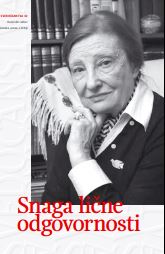
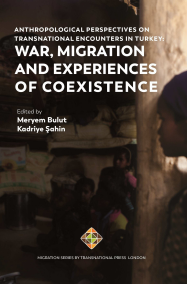
The destructive effects of the Second World War, which resulted in great loss and suffering in the not so distant past, still has an important place in the lives of countless people living in different geographical locations. German families constitute a population whose members witnessed the bitter outcomes of the war in no small measure. War-related memories of families have been handed down from generation to generation up to the present day. Despite many of the generation who actually lived through the war preferring to erase the traces of it from their day to day lives, their children and even their grandchildren have taken on board this memory (Koçyiğit, 2016).
More...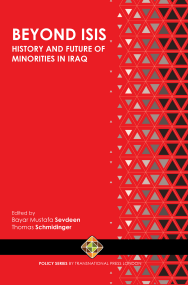
The Karaites are one of the religious communities erased from the memory of Iraq. Today hardly anybody in Iraq remembers this centuries-old religious community rooted in the Abrahamic faith of Islam, Christianity and mainstream Judaism. Multiple marginalisations resulted in nobody ever telling the story of the last Karaites in Iraq. The isolated and rural community in the town of Hīt in Anbar did not have any intellectuals to document their history. Later, Karaite Jews became a minority among the rabbinic Jews in Israel and the Iraqi Karaites were even a tiny minority within the minority of the Karaites of Israel. Without anyone interested in their history, even the second generation in Israel did not think that the stories of their parents and grandparents would be worth recording and telling.
More...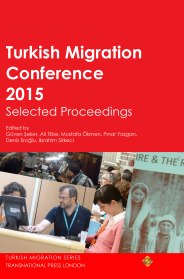
1968 yılı, bu bildiri için iki farklı önemli noktaya işaret eder. İlki Mercedes – Benz lisansıyla Türkiye’de ilk defa fabrikasyon olarak şehirlerarası ve şehiriçi otobüs imalatının başladığını gösteren bir kuruluşun faaliyete geçmesidir. İkincisi ise Yaşar Kemal’in eserinden uyarlanan 1968 yılı yapımı Urfa – İstanbul filmidir. Bu filmde günün şartlarında ve günün ulaşım araçlarıyla yaşanan bir kaçmakovalama öyküsü perdeye aktarılmıştır. Konumuz itibarı ile bizi filmde kullanılan ulaşım araçları ilgilendirir.
More...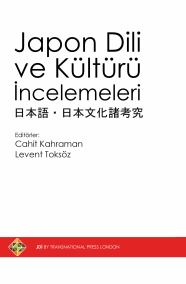
1853 yılında Amiral Perry’nin savaş gemileriyle Japonya’ya gelişi ile birlikte, Japonya’da büyük bir değişim yaşanmış ve 1868 yılında İmparator Meiji, gücü eline almıştır. Bu dönem ile birlikte, Meiji Restorasyonu başlamış ve Japonya, Batılı devletler ile iletişime geçerek onların kültür, bilgi birikimi ve teknik bilgilerini Japonya’ya getirmiş ve bu düşünce akımları içerisinde Emperyalizm kavramını da öğrenmiştir. Bunun ilk uygulamasını da Kore’ye limanlarını açması için baskı yaparak gerçekleşmiştir. Daha sonra ise, 1894- 1895 Çin-Japon Savaşı sonucunda, Tayvan Adasını, 1910 yılında Kore’yi topraklarına katmıştır. 1920 yılında Milletler Cemiyetinin kararıyla burada Güney Pasifik Mandası’nı kurması sürecinden İkinci Dünya Savaşında Çin, Çinhindi ve Pasifik Adalarını da içeren geniş bir coğrafyayı işgal etmesi ile birlikte tarihindeki en geniş toprak sınırına ulaşmıştır. Japonya, İkinci Dünya Savaşı sırasında topraklarına kattığı yerlerde yerli halklara yönelik sistematik bir biçimde Japon dili eğitimi uygulamıştır. Filipinler de Japon dili eğitimi uygulanmış yerlerden birisidir.
More...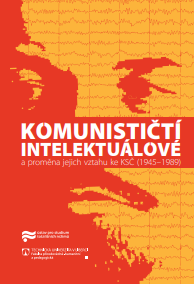
The study uses methodology “cultural memory studies” to feature the National Theater as a place of memory. It focuses on the building as a symbol and attempts to describe the way, in which the symbolic architecture represents the past and enters the memory praxis of the nation (decoration of the theater, canonical repertoire, festivities, collections and so-called theater trains as actions of national participation). The author adds a dynamic extent of remembrance to a traditional approach – place of memory as a depository of representations of history. He contemplates the National Theater as an “empty place” – a framework of a specific social and cultural context to deliver substance of the past. The study analyses the process of the National Theater constitution as a place of memory – especially in the connection with the 1881 fire. This “national tragedy” symbolized one of the most powerful experiences of the modern Czech nation, that as a strong shared affection reflected itself in the process of constitution of the national identity. In this instance the study utilizes theme of trauma used by Aleida Assmann in the frame of the memory studies. The study uses a few cases to demonstrate memory praxis closely linked to a symbolic space of the National Theater (production of the Čapek’s theater play the White Disease (Bílá nemoc) in 1937, role of the theater during political changes in 1989).
More...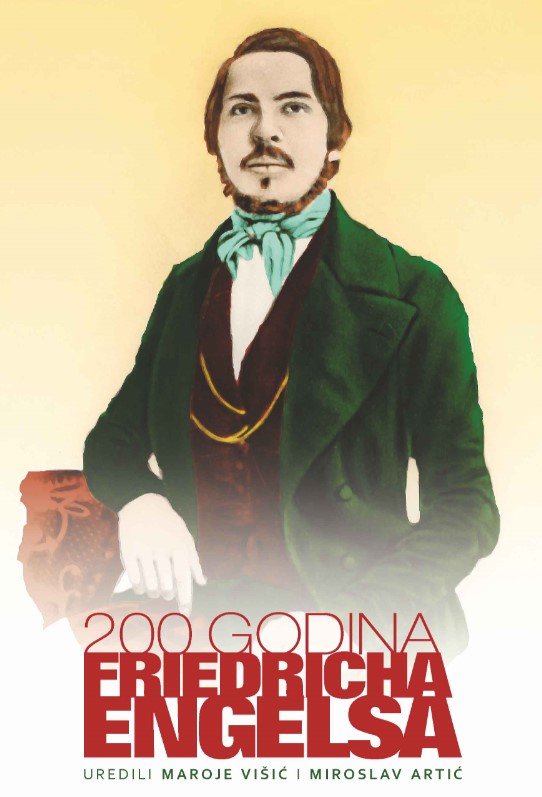
In the article I discuss the process of Engels’ search for a social alternative in the conditions of the pre-revolutionary crisis that struck Europe in the early 1940s. Twenty-two-year-old Engels became enthralled with it when he arrived in London in November, 1842. He was young, rebellious, of a brilliant mind and exploratory spirit. He belonged to a generation whose youth coincided with the culmination of the crisis of the Restoration period. Against this background, I want to look at the period that Engels spent between November 1842 and April 1845 in Manchester, where he arrived from his parents’ home in Barmen.
More...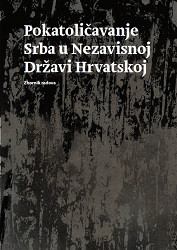
Jugoslovenska država je 1918. stvorena na liberalnim načelima, među njima i na načelu slobode veroispovesti i verske ravnopravnosti, baštineći tradiciju Kraljevine Srbije. To načelo je prihvaćeno tokom pregovora o uređenju buduće države sredinom 1917. i uneseno u Ustav nove države. Uvođenje liberalnog građanskog uređenja u jugoslovenskoj državi je omogućilo polet hrvatskog nacionalističkog pokreta oličenog u Hrvatskoj seljačkoj stranci. Rimokatolička crkva (RKC) nije bila zadovoljna svojim položajem u jugoslovenskoj državi. Umesto privilegovanog položaja u dvojnoj monarhiji, ona je posle 1918. bila jedna od priznatih veroispovesti u državi u kojoj je vladar bio pravoslavne vere. Izvestan broj rimokatolika je iz raznih razloga (iz ubeđenja, zbog braka, iz karijerističkih pobuda) prihvatio pravoslavnu veru. Velikodostojnici RKC su izuzetno preuveličavali te brojeve nastojeći i time da dokažu da je ona u neravnopravnom položaju u odnosu na Srpsku pravoslavnu crkvu (SPC). Gašenje političke aktivnosti posle proglašenja diktature kralja Aleksandra januara 1929. otvorilo je prostor RKC da preko masovnih organizacija Katoličke akcije i Križara organizuje jednu od najsnažnijih opozicija režimu. [...]
More...
Sudbina imovine Srpske pravoslavne crkve u Nezavisnoj državi Hrvatskoj, na prvom mestu njenih hramova i pripadajućih crkvenih zgrada, često je jugoslovensku, a potom i srpsku istoriografiju interesovala kao sekundarna sastavnica sprovođenja opšteg antisrpskog projekta NDH. Veoma je mali broj specifičnih studija posvećenih ovom problemu, a još je manje metodološki precizno i potpuno naučno korektno profilisanih pristupa u njima. Posledično, još uvek ne postoje sasvim jasne identifikacije posebnih motiva, institucionalne organizacije i rezultata rušenja ili devastacije pravoslavnih crkava u prve dve godine nakon uspostave ustaškog režima u Hrvatskoj. Opšti ideološki okvir uništavanja Srpske pravoslavne crkve kao institucije u NDH nakon 1941. istoriografski je ipak temeljno rasvetljen, prvenstveno zahvaljujući obilju dokaza koje pružaju sačuvani izvori. Međutim, izvori za rasvetljavanje fenomena rušenja crkava znatno su oskudniji i dominantno spadaju u kategoriju danas teško proverljivih, a u pojedinostima često i kontradiktornih zabeleženih individualnih svedočanstava. [...]
More...